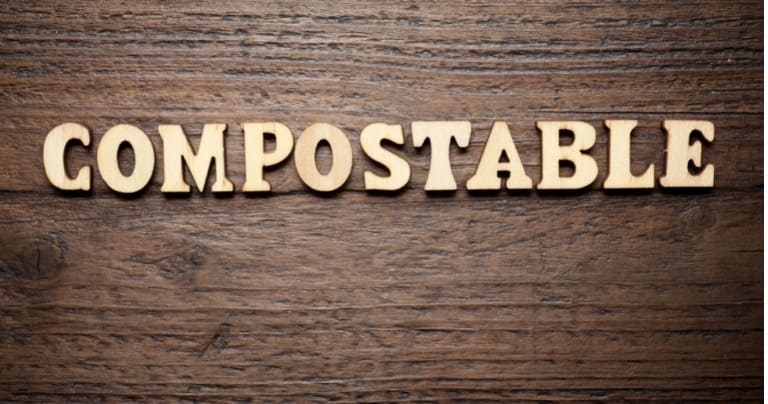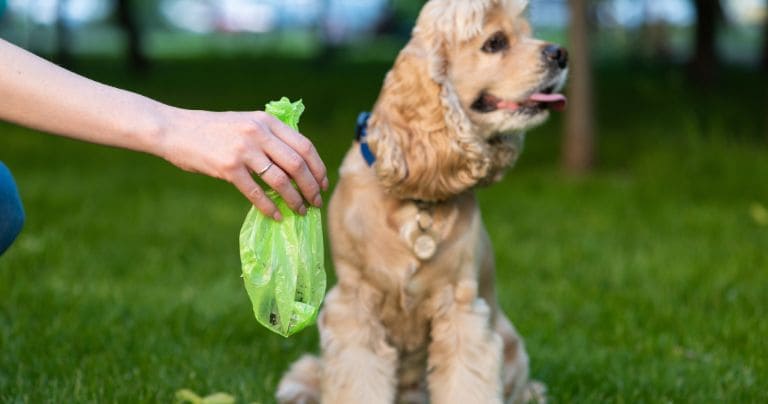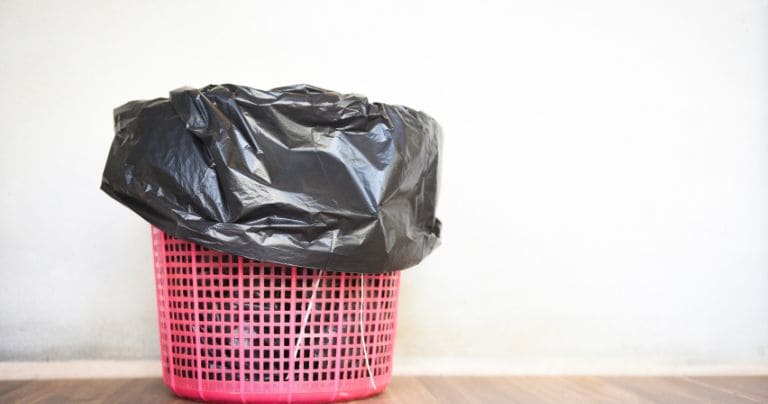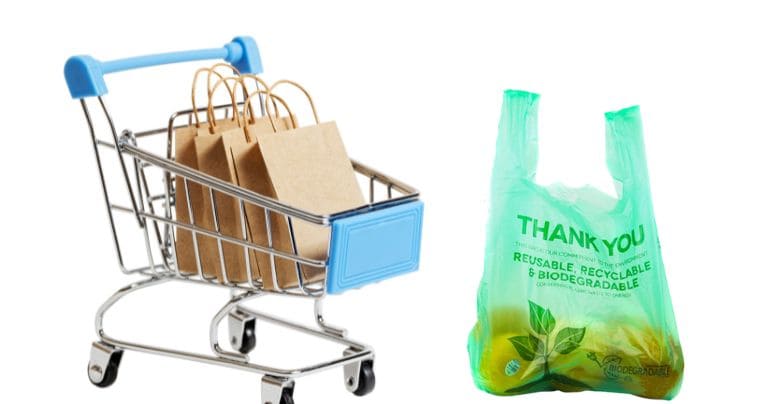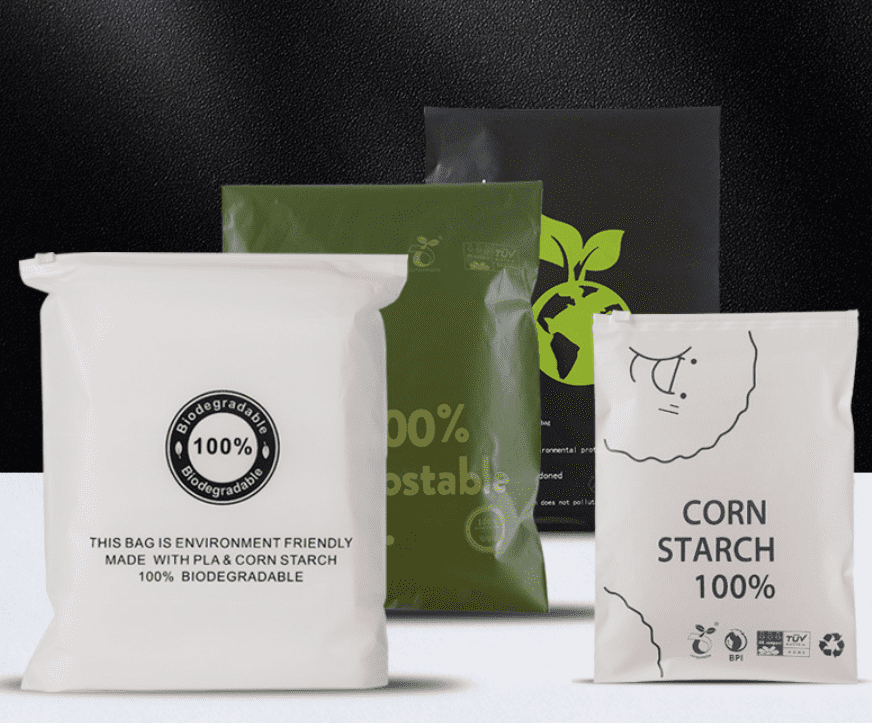Table of Contents
If you’re an eco-friendly person, you probably already know that plastic is one of the worst things for the environment. It takes up to 500 years for a single bag to decompose, and it pollutes our oceans.
But what if there was another way? What if we could make bags out of something other than plastic? Well, now there is! Introducing compostable bags are made from plant based materials like corn starch or sugar cane, which microorganisms can break down in just six months.
A little-known fact is that many bags are not biodegradable, even if they say so on the packaging. Have you ever opened a bag of potato chips and found it was made of plastic? These bags can’t be composted because they don’t break down in the environment. In this post, we’ll cover the steps to make compostable bags to solve this problem!
-
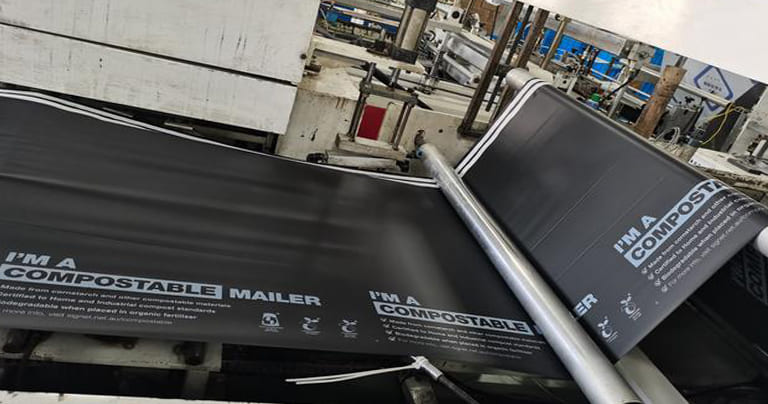
compostable bags manufacturing
All you need to know about making compostable bags!
Monopacking full biodegradable PBAT+PLA synthetic material (film grade) is a fully biodegradable resin made by blending and grafting with biomass polymer using PBAT and PLA as the main raw materials. It is usually milky white, has a corn starch fragrance, is easily decomposed by microorganisms, and is naturally antistatic. It has good coloring performance and can be directly processed into various films widely used in shopping bags, garbage bags, packaging bags, and other kinds of products.
The product has a broad market prospect and is a new green environmental protection and energy-saving product in line with the national low-carbon economic policy.
Materials for making compostable bags
These compostable bags can use PBAT, PLA fully degradable resin, corn starch/potato starch/tapioca starch, and compostable bags made from these materials to package various products, including food, groceries, etc. other items. They can also be used as liners for garbage cans and help reduce the amount of plastic waste in landfills and oceans. Composting is an essential part of the waste management process, and compostable bags are a great way to help reduce the amount of plastic waste in our environment.
How to make compostable bags?
There are a variety of different ways to make compostable bags. Many companies use an extrusion process, where the material is melted and pushed through tiny holes to form a thin sheet that is then cut into bag shapes and printed with a logo or other design.
Other methods include injection molding machines that rapidly cool plastic resin pellets, so they melt together seamlessly before being injected into molds under extreme pressure.
1. The raw material PBAT, PLA, accounts for 60-70%, the remaining 30% corn starch, or potato starch.
2. The film can be tube material or sheet material. The tube material is suitable for making bags, such as fully degradable shopping bags, compostable garbage bags, grocery bags, T-shirt bags. The sheet material is suitable for injection molding products, such as disposable forks, disposable fast food boxes, etc.
3. Roll material printing and then transfer to the top of the bag-making machine, cut into a bag. Bag cutting machines can make many kinds of bags, such as fully degradable bone bags, fully compostable tote bags, ziplock bags, dog poop bags, disposable gloves, self-sealing bags.
-
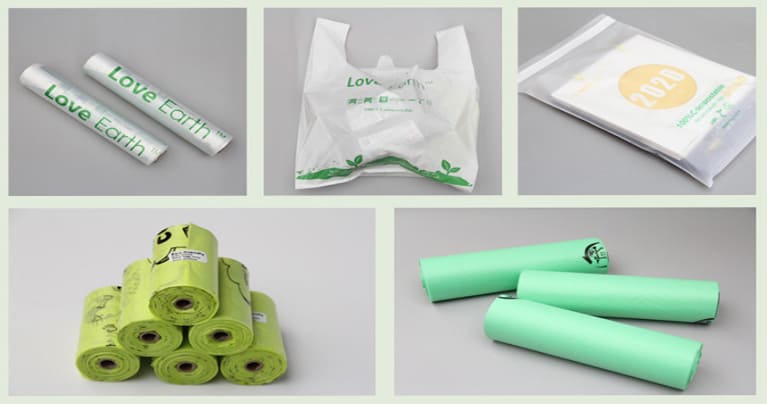
monopacking compostable packaging manufacturer
Benefits of using compostable bags:
Composting may seem like a daunting task, but there are many benefits to using compostable bags.
- Reduced greenhouse gas emissions.
- Saving energy and water use in the production process.
- Using bio-based materials instead of petroleum to create compostable bags helps reduce CO2 pollution.
- They are made from renewable resources.
- Degrade quickly in the environment, making them a more sustainable option than conventional plastic bags.
- Can be composted with organic waste, helping to reduce the amount of waste going into landfills.
- Can be used to package various products, including food, groceries, and other items.
- A great way to help reduce the amount of plastic waste that ends up in landfills and oceans.
These bags can help consumers make eco-conscious decisions about what they buy. They also offer an excellent option for companies that may want to move away from plastic packaging or other unsustainable production methods. The use of compostable bags is snowballing as more and more people recognize their benefits.
The problem of plastic and paper food bags:
Plastic bags are a huge hassle for companies that produce food because they need to use multiple bags per order placed. They also end up in landfills and oceans, and their durability poses a problem for the environment. Plastic waste has been found floating in our planet’s oceans at an alarming rate。
The average American uses about 300 pounds of plastic per year from shopping bags alone, which means it takes hundreds of years for these plastics to degrade naturally. This adds significantly to greenhouse gas emissions because methane is released when bacteria break these products down over time. Paper shopping bags are also usually not compostable, which means that if you want to use paper or reusable shopping bags, you’ll need several paper shopping bags instead.
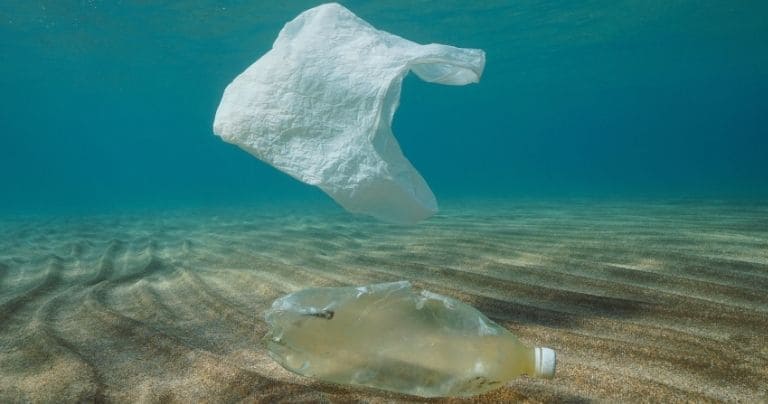
Best practices for using and storing compostable bags
It is important to use them properly. Here are some considerations for using and storing compostable bags
-Use only compostable bags for organic waste. Please do not use them for non-recyclable or non-organic waste. For example, batteries, electronics, glass, metal, etc.
-Be careful when storing compostable bags to avoid punctures or accidental tears. The last thing you want is for your waste to spill out and get everywhere! Compostable bags hold odors well, so it’s best not to open them in a closed area.
How to dispose of used compostable bags?
Compostable bags can be disposed of in a variety of ways. The easiest way to dispose of them is to throw them in an industrial compost bin or approved container, but they can also be thrown in a regular outdoor bin.
Before throwing the bags away, flatten them for recycling facilities.
If you want to do your part in protecting our environment, stop using plastic bags and replace them with compostable ones.
